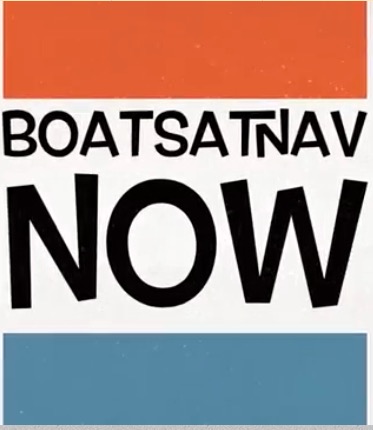The three main CRT documents used to inform the contents of this page are:
- ‘Business Licence Terms and Conditions‘ 7th June 2017
- ‘General Terms and Conditions for Boat Licences‘ October 2008, updated March 2017
- https://canalrivertrust.org.uk/business-and-trade/boating-business/starting-or-expanding-a-boating-business/roving-traders

Do I need a Trade Licence?
You need a Trade Licence if you are using your boat for anything other than private or leisure. So if you make, buy-in, or provide a service and sell to the public (internet, towpath or both) you need a current CRT trade licence. There is an exception which is if you use your boat as an office, and do not have members of the public visit. (CRT Business Boating)
In the CRT ‘Terms ad Conditions for Business Boat Licences’ page 10 definition of Roving Trader, it states:
“Advertising any kind of trading or business activity on or from the boat is deemed to be trading. If the boat is used for a business use that is not advertised anywhere on the boat and does not involve any deliveries to the boat or any customers visiting the boat (e.g. proof reading copy sent by email, writing wills, etc) then it’s use is not deemed to be that of a Roving Trader. If the boat is used as a workshop to produce goods to be sold on the internet or at land based markets, then such use is deemed to be that of a Roving Trader.”
How much does a Trade License cost?
The business licence is different from a private licence and it’s broken down into categories. There’s a specific price for Roving Traders (Price List) based on the length of your boat. This is the yearly cost of a Trade Licence, and all you will pay.
Do I have to be a Continuous Cruiser (CCer) to be a Roving Trader?
No. The Roving Trader Licence is a licence for you to trade on the towpath. It does not mean that you have to be a CCer or live-aboard. You can have a home mooring, not live onboard, and still be a Roving Trader. You’re allowed to trade from a permanent mooring so long as you have permission from the mooring provider and they have the relevant planning permission.
On Winter Moorings you’re allowed to trade for up to 28 days. You’ll have to sign a disclaimer that you’ll abide by this. “28 days in any one spot” is also a restriction that applies to trading on CRT waters throughout the year – see Roving Traders Terms & Conditions (link)
Or if you wish to remain permanently in one spot, you can apply for a Fixed Traders Licence from CRT. (CRT Operating Proposal). This is charged roughly at the same rate as a normal towpath mooring in the area.
What are the rules about product placement when trading from the boat?
“11.4 Whilst the boat is on the Waterway you must not:
(b) use any electricity generator, including the Boat’s engine, at any mooring along the Waterway between 8pm and 8am, unless you are moored in isolation, out of earshot of other people.
(e) obstruct the towpath or use our land for storing items from your Boat.”
“You must keep all items associated with your trade on your boat at all times. You may place one A-frame style advertising board on the land next to your boat when you are open for trading, providing that it does not cause a nuisance or obstruction.”
Do I need insurance?
Yes! You have to have specific insurance for your boat which covers trading, and depends on your business activity). It’s generally referred to as “Hatch Sales”.
“You must provide us with evidence that you are insured for your proposed activities on application and at each renewal of the Licence.”
You’ll then need Public Liability Insurance (PLI). This is sometimes included in the Hatch Sales from your boat insurance, but not always so you need to check with your insurance company. CRT will want to see that you have the requisite PLI.
“You must have an keep in force third party and public liability insurance cover provided by a company that is authorised and regulated by the Financial Conduct Authority which covers liabilities of at least two million pounds for each claim.”
How much does insurance to trade cost?
Generally its not that much more expensive than normal boat insurance. It very much depends on your business activities and if you want stock cover. We recommend you get a quote to gauge costs. Separate Public Liability Insurance should be in the range of £50-£100. Again this is dependant on your business activities and whether it’s included in your boat insurance.
Where can I trade?
There are no restrictions on CRT waters when you hold a CRT Roving Trader Licence. You still have to abide by ‘Visitor Mooring’ times – 2-days, 5-days, and the general 14-day rule.
Roving Traders however DO NOT have priority over any moorings, UNLESS they are reserved for a specific event by CRT.
Is any provision made for weekend trading, or from a winter mooring?
We have an agreement with CRT that all traders on 2-day (48hr) ‘Visitor Moorings’, can arrive on a Friday, trade over the weekend, and leave on the Monday (Tuesday if a Bank Holiday, Thursday – Tuesday on the easter weekend).
As above, agreement has also been reached for winter trading from a mooring, of either 28 consecutive days, or for a total of 28 days within the period of the winter mooring. CRT will ask for a declaration to be made by each trader that they will adhere to the planning regulations for trading, when a winter mooring is secured by a trader.
Can I trade at a ‘pop up market’?
As far as we are currently aware, a ‘Pop-up’ market can take place, with a maximum of six trade boats, and the event is not advertised as a ‘pop up’ – you can say you’ll be trading at a certain place and time, and others may join you.
If there are any more than six trade boats, there needs to be event insurance in place, and consent from CRT.
Can you make sufficient money to sustain your lifestyle?
As with any business, it’s hard work and there’s more bureaucracy than a land based business to consider. It’s also based on indivudual expectations – if you wish to make £millions then no! If it’s a lifestyle you want then yes!
With the right business and attitude, you could achieve a comfortable level of income. We would recommend you consider alternative modes in addition to selling from the boat such as using the Internet, land-based stalls, etc, because of the variable nature of the British weather, and the seasonal availability of Floating Markets/trading opportunities.
Towpath sales and festivals are obviously very much dependant on the weather. Locations and routes need to be considered, as it can take time to get from one location to another. (One trader may report doing very well at one spot, at certain times of the year, and another will do nothing at other times in the same place. Some traders swear by canal festivals, and some don’t.)
Can I have customers on my boat?
Yes, if you wish – but only if you have informed CRT and have the relevant insurance, and the relevant level of Boat Safety Certification.
“… any trading boat that allows customers on board their boat, must ensure that the Non-private Boat Safety Scheme inspection has been carried out if a Boat Safety Scheme Certificate is required.”
Most traders just have displays on the side of their boat, but if you wish to have customers onboard then it’s achievable.
What do I do if I want to sell food?
You will need to read and follow the Food Law Code of Practice (March 2017).
Registration with a local environmental health office is required. They recommend having a food safety level 2 certificate which can be done cheaply online. Most EH offices are on a new centralised computer system meaning that you only need to register once.
You also need to inform CRT as part of your operating proposal, and have relevant insurance.
Where can I find out about trading events?
Canal Festivals and Markets are great places to trade at, and not just for the business. They’re usually a great social event. If you know of an event they usually have a booking form online.
There is an ‘Events’ page on this website which is kept as up to date as possible.
Finding out about events, we suggest Internet search for ‘canal festivals’. CRT has an events page on its website, The canal press such as Towpath Talk, waterways magazines, etc, have events listed and contact details. The RCTA Floating Markets are another type of event to trade at.
What about tax?
It’s quite straight forward.
Case 1: You are selling part time and are on PAYE. You will need to fill in a self assessment form declaring your extra income produced selling from your boat.
Case 2: If it’s your only income, then you need to register as a sole trader with HMRC. Again you’ll have to fill in a self assessment form.
If you become really successful, you can then consider Limited Company status and registering for VAT. HMRC has really useful information on their website. We’ve found that they’re very helpful, and will explain everything.
https://www.gov.uk/topic/business-tax/self-employed
There’s also some information on the government website:
https://www.gov.uk/browse/business/setting-up
In terms of records, CRT might request to see some accounts, and keeping good records makes it easier to fill in your self assessment. This is from the HMRC website:
“You must keep records so that you can fill in the return fully and accurately.
Your basic business records must include:
- a record of all your sales and takings
- a record of all your purchases and expenses”
You, or your accountant, can, if you wish, use these records to create a profit and loss account. It shows the sales income you’ve received and the expenses you’ve paid, and what profit/loss you’ve actually made. The more detailed records you keep, the easier it will be to answer any questions that HMRC have about your tax return.
You can do it yourself, but we recommend you get an accountant to fill in your self assessment. If you’ve kept good records, it’s easy for you or accountant to fill in the self assessment thus keeping the cost down. The accountant’s fee is tax deductible.
There are two main types of accounting software you can use: Sage Accounting (subscription), and Quickfile (free); These are the most popular and most accountants will have experience of them.
It’s a good idea to have a separate bank account. It also makes it easier for accounting. Most banks offer a business bank account – be aware of the bank charges, and find a suitable account for your needs.









































































 RCTA Linslade Easter Floating Market
RCTA Linslade Easter Floating Market RCTA Gt. Haywood Easter Floating Market - Full
RCTA Gt. Haywood Easter Floating Market - Full IWA Canalway Cavalcade 2025
IWA Canalway Cavalcade 2025 RCTA Startops May Day BH Floating Market at Marsworth
RCTA Startops May Day BH Floating Market at Marsworth Norbury Canal Festival 2025
Norbury Canal Festival 2025 RCTA Burton on Trent May Day BH Floating Market
RCTA Burton on Trent May Day BH Floating Market RCTA Willington Floating Market
RCTA Willington Floating Market RCTA Berkhamsted Floating Market
RCTA Berkhamsted Floating Market Moira Canal Festival
Moira Canal Festival The Batchworth Rally
The Batchworth Rally


